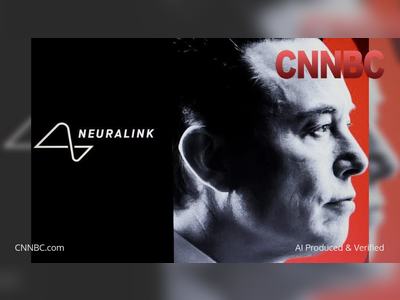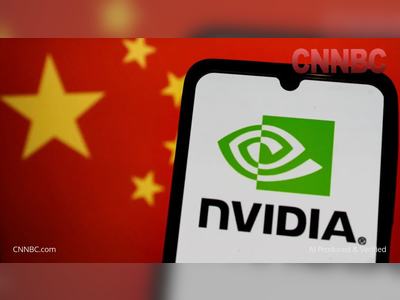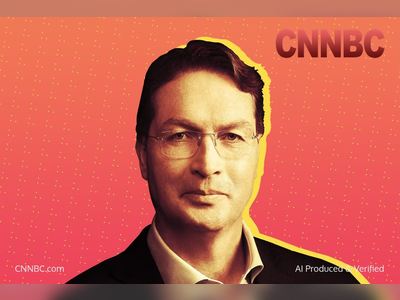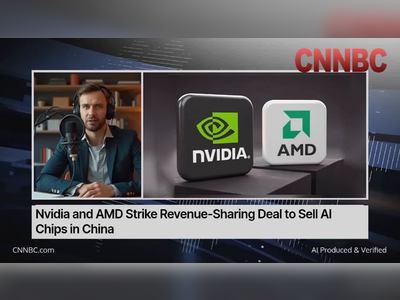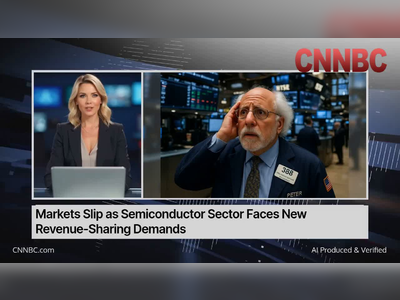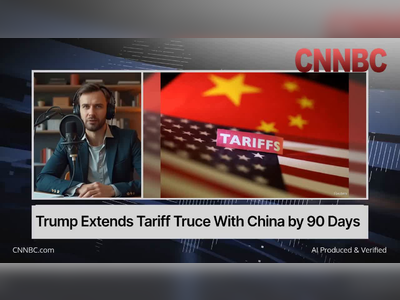Where Are the New Billionaires Coming From? Ask ChatGPT
Artificial intelligence companies are creating unprecedented wealth, producing a new wave of billionaires at a pace and scale not seen in the last century.
The largest generators of new billionaires today are artificial intelligence (AI) companies.
“If you look back a hundred years at the data, we have never seen wealth created at this scale and speed,” said Andrew McAfee, principal research scientist at MIT.
“It’s unprecedented.”
Successful funding rounds this year for companies such as Anthropic, Safe Superintelligence, OpenAI, Anysphere, and other startups have driven valuations to record highs.
There are now 498 AI 'unicorns'—privately held companies valued at one billion dollars or more—with a combined valuation of 2.7 trillion dollars, according to a CNBC report.
Alongside surging stock prices for publicly traded AI-linked firms such as Nvidia, Meta, Microsoft, and others, as well as infrastructure companies building data centers and computing power, and the massive paychecks going to AI engineers, artificial intelligence is generating personal fortunes on a massive scale.
Mira Murati, who left OpenAI last September, launched Thinking Machines Lab in February.
By July, she had raised two billion dollars in the largest-ever initial funding round, giving the company a reported valuation of twelve billion dollars.
Anthropic AI, creator of Claude, is in talks to raise five billion dollars at a valuation of 170 billion dollars—nearly triple its valuation from March.
CEO Dario Amodei and his six co-founders are likely already multibillionaires.
Anysphere was valued at 9.9 billion dollars in a June funding round, and just weeks later its valuation doubled to around 20 billion dollars, making its 25-year-old founder and CEO, Michael Truell, a billionaire.
Most of the wealth generated by AI to date comes through private companies, making it difficult for shareholders and founders to cash out, at least for now, until an acquisition or IPO occurs.
Unlike the dot-com boom of the late 1990s, when many companies went public, today’s AI startups can remain private longer due to steady investment from venture capital funds, sovereign wealth funds, family offices, and other technology investors.
The AI boom, centered largely in Silicon Valley, still evokes memories of the dot-com era.
Last year, Silicon Valley companies raised more than 35 billion dollars in venture capital funding, according to the Silicon Valley Institute for Regional Studies.
San Francisco now has more billionaires than New York—82 versus 66, according to New World Wealth and Henley & Partners.
The Bay Area’s millionaire population has doubled in the past decade, compared with 45 percent growth in New York.
“People who know how to found, fund, and scale technology companies are in the same place,” McAfee said.
“I’ve been hearing for 25 years that ‘this is the end of Silicon Valley’ or that another place is ‘the new Silicon Valley.’ But Silicon Valley is still Silicon Valley.”
More homes priced over 20 million dollars sold in San Francisco last year than in any year in history, according to Sotheby’s International Realty.
Rising rents, housing prices, and demand in the city—largely attributed to AI—mark a sharp turnaround for a city that was facing decline only a few years ago.
The allure of AI wealth may present challenges for traditional wealth management firms.
Simon Krinsky, a senior executive at Pathstone and former managing director at Hall Capital Partners in San Francisco, said AI millionaires are likely to follow patterns similar to the newly rich dot-com entrepreneurs of the 1990s.
Initially, dot-com founders used their liquidity and surplus assets to invest in similar technology companies they knew through their networks, peers, or co-investors.
Krinsky said the same is expected for AI’s wealthy: “Everyone went around and invested with their friends in the same kind of companies that created their wealth.”
Eventually, ultra-wealthy AI founders will recognize the need for the traditional, personal services that only wealth management teams can provide—whether in taxes, inheritances and estate planning, philanthropic advising, or portfolio construction.
“After people were hit or burned in the early 2000s, they came to value some degree of diversification and perhaps hired a professional manager to protect them from themselves,” Krinsky said.
“I expect a similar trend with the AI group.”
“If you look back a hundred years at the data, we have never seen wealth created at this scale and speed,” said Andrew McAfee, principal research scientist at MIT.
“It’s unprecedented.”
Successful funding rounds this year for companies such as Anthropic, Safe Superintelligence, OpenAI, Anysphere, and other startups have driven valuations to record highs.
There are now 498 AI 'unicorns'—privately held companies valued at one billion dollars or more—with a combined valuation of 2.7 trillion dollars, according to a CNBC report.
Alongside surging stock prices for publicly traded AI-linked firms such as Nvidia, Meta, Microsoft, and others, as well as infrastructure companies building data centers and computing power, and the massive paychecks going to AI engineers, artificial intelligence is generating personal fortunes on a massive scale.
Mira Murati, who left OpenAI last September, launched Thinking Machines Lab in February.
By July, she had raised two billion dollars in the largest-ever initial funding round, giving the company a reported valuation of twelve billion dollars.
Anthropic AI, creator of Claude, is in talks to raise five billion dollars at a valuation of 170 billion dollars—nearly triple its valuation from March.
CEO Dario Amodei and his six co-founders are likely already multibillionaires.
Anysphere was valued at 9.9 billion dollars in a June funding round, and just weeks later its valuation doubled to around 20 billion dollars, making its 25-year-old founder and CEO, Michael Truell, a billionaire.
Most of the wealth generated by AI to date comes through private companies, making it difficult for shareholders and founders to cash out, at least for now, until an acquisition or IPO occurs.
Unlike the dot-com boom of the late 1990s, when many companies went public, today’s AI startups can remain private longer due to steady investment from venture capital funds, sovereign wealth funds, family offices, and other technology investors.
The AI boom, centered largely in Silicon Valley, still evokes memories of the dot-com era.
Last year, Silicon Valley companies raised more than 35 billion dollars in venture capital funding, according to the Silicon Valley Institute for Regional Studies.
San Francisco now has more billionaires than New York—82 versus 66, according to New World Wealth and Henley & Partners.
The Bay Area’s millionaire population has doubled in the past decade, compared with 45 percent growth in New York.
“People who know how to found, fund, and scale technology companies are in the same place,” McAfee said.
“I’ve been hearing for 25 years that ‘this is the end of Silicon Valley’ or that another place is ‘the new Silicon Valley.’ But Silicon Valley is still Silicon Valley.”
More homes priced over 20 million dollars sold in San Francisco last year than in any year in history, according to Sotheby’s International Realty.
Rising rents, housing prices, and demand in the city—largely attributed to AI—mark a sharp turnaround for a city that was facing decline only a few years ago.
The allure of AI wealth may present challenges for traditional wealth management firms.
Simon Krinsky, a senior executive at Pathstone and former managing director at Hall Capital Partners in San Francisco, said AI millionaires are likely to follow patterns similar to the newly rich dot-com entrepreneurs of the 1990s.
Initially, dot-com founders used their liquidity and surplus assets to invest in similar technology companies they knew through their networks, peers, or co-investors.
Krinsky said the same is expected for AI’s wealthy: “Everyone went around and invested with their friends in the same kind of companies that created their wealth.”
Eventually, ultra-wealthy AI founders will recognize the need for the traditional, personal services that only wealth management teams can provide—whether in taxes, inheritances and estate planning, philanthropic advising, or portfolio construction.
“After people were hit or burned in the early 2000s, they came to value some degree of diversification and perhaps hired a professional manager to protect them from themselves,” Krinsky said.
“I expect a similar trend with the AI group.”

